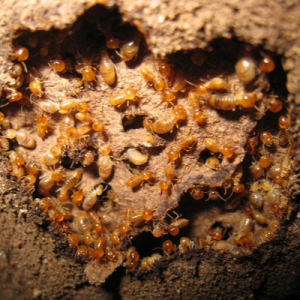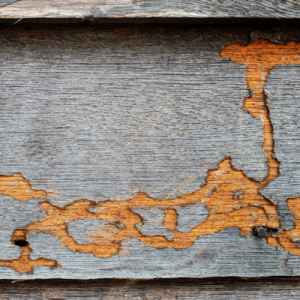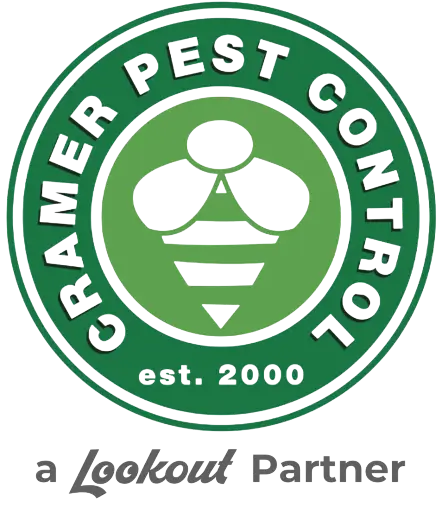Several types of wood-destroying insects can invade your home in North Carolina, but none are as destructive as termites. Each year, termites cause over a billion dollars in structural damage. There are two types of termites that cause damage to homes and buildings in the United States. Being able to spot the signs of termites early can save your home and your wallet. 
Subterranean Termites
Subterranean termites live underground or in dead trees and love moisture. When they come out to forage for food or in search of a new nest, they create mud tubes to protect them from predators and keep moisture inside. You’ll notice these tubes snaking their way up the sides of buildings. When they find a crack or gap they can gain entry into your house.
To make your home unattractive to subterranean termites, make sure you have no leaks in your attic or basement. Stack firewood at least 20 feet away from your home to make it harder for them to gain entry. Inside the house, you should reduce humidity by ensuring proper ventilation of crawl spaces, and attics.
Drywood Termites
Drywood termites are the most common type of termite in the United States and can infest lumber, furniture, hardwoods and softwoods. Drywood termites can live pretty much anywhere there is wood and can cause a lot of damage to structures and support beams as they carve galleries for their nest.
Treating For Termites
Termites are difficult to control because usually, you can’t see them. However, there are a couple of signs you can look for to tell if you have an infestation. 
Signs of Termites
- Mud tubes on the outside of buildings
- Wood sounds hollow. when tapped
- Darkening or blistering of wood. structures
- Accumulation of frass (feces) that looks like sawdust
- Discarded wings from swarmers
Non-Chemical Treatments
There are a few non-chemical methods that can prevent termites from gaining entry into your home. One way is by installing a barrier of some kind around the foundation of your house to discourage subterranean termites. Sand and loose stones also work to discourage subterranean termites from building nests near your home.
Chemical Treatments
One method to control termites with pesticides is to treat the soil around your house with a termite insecticide, such as imidacloprid or fipronil. You can also purchase termite bait traps that work similarly to ant bait traps. The workers are attracted to the poison and take it back to the nest where it kills the rest of the colony.
It should be noted that these treatments are not guaranteed to kill all termites or prevent them from returning. If you have a bad termite infestation, it should be left to the professionals.
Perimeter Pest Control
The best way to prevent termites is with a perimeter pest control application from Cramer Pest Control. Our perimeter pest control is applied around the foundation of your home to make termites, ants, spiders, and other crawling insects think twice before coming into your home.
Call the Pest Control Experts
Don’t let termites turn your home into a buffet. Get termite control from Cramer Pest Control.
At Cramer Pest Control, we have pest control programs to fit every situation. So, whether you’re looking for Residential Pest Control, Indoor Pest Control, or Commercial Pest Control, the experts at Cramer Pest Control have the solution for you.
Don’t wait for the problem to get out of control, call us now at (704) 763-0204 or (803) 802-7540 to get started. You can also contact us here for more information. Don’t forget to follow us on Facebook for the latest deals and check out our blog for monthly pest control tips and tricks.
Termites: How to Spot and Prevent Them From Eating You Out of House and Home in North Carolina and South Carolina
Protecting North Carolina and South Carolina
